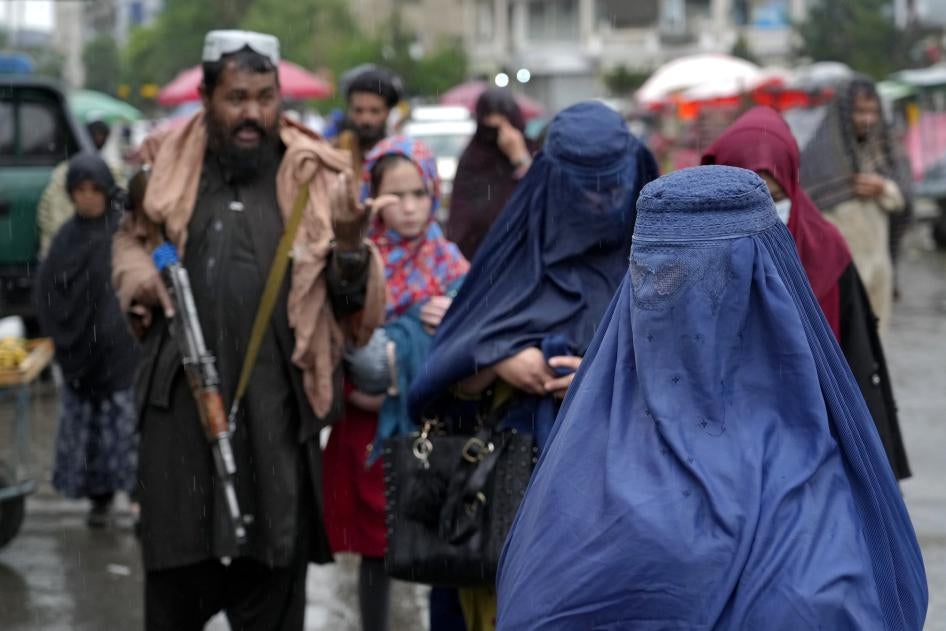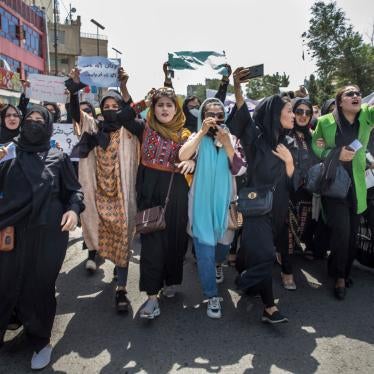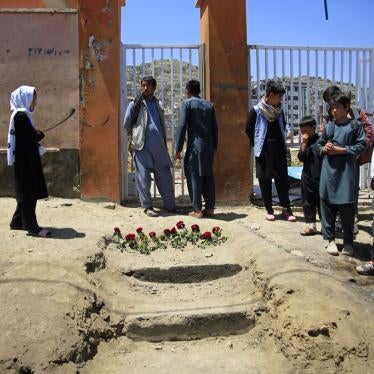This week, the United Nations special rapporteur on human rights in Afghanistan, Richard Bennett, released his first report. It is a catalog of abuses under Taliban rule since August 2021 and their devastating impact on Afghans. The report also highlights the devastating humanitarian impact of the country’s economic crisis, caused in part by actions by foreign governments, noting that “all parties bear degrees of responsibility for failures to deliver economic and social rights.”
The report describes “staggering regression in women and girls’ enjoyment of civil, political, economic, social and cultural rights.” It notes that “in no other country have women and girls so rapidly disappeared from all spheres of public life,” echoing a recent statement by UN experts describing “wide-spread, systematic and all-encompassing” attacks on the rights of women and girls. The report also details Taliban abuses against officials from the former government, journalists, and religious minorities, among other rights concerns.
As someone who worked in Afghanistan before the first Taliban government fell in 2001, I have witnessed Taliban oppression firsthand. The report’s details are distressingly familiar.
Under the Taliban, the rule of law has no meaning. It isn’t even clear what “the law” is. Since last year, when the Taliban revoked the country’s constitution and stated that all laws needed to comply with Sharia, or Islamic law, it hasn’t been clear which laws and regulations are in force or how crimes are to be handled. Instead, there are only “evolving and arbitrarily interpreted rules and decrees,” according to the UN report, and legal cases “are handled idiosyncratically across jurisdictions and venues,” while basic crimes are “often dealt with by security forces without involving prosecutors or judges.”
In short, “the law” is whatever a Taliban official might say it is. A situation more threatening to human rights is hard to imagine.
The Taliban authorities should take the report’s recommendations seriously. Most urgently, they should rescind abusive policies that violate the rights of women and girls, protect religious minorities, and engage with the special rapporteur and other UN offices to develop reforms.
The UN Human Rights Council is due to discuss the findings of the report later this month. States should take this opportunity to renew the mandate of the special rapporteur and to establish a new body that will investigate abuses and advance accountability.
Afghans are entitled to better than what the Taliban have given them: A life with few freedoms, no real justice, and where half the population is shut out of education and work.










